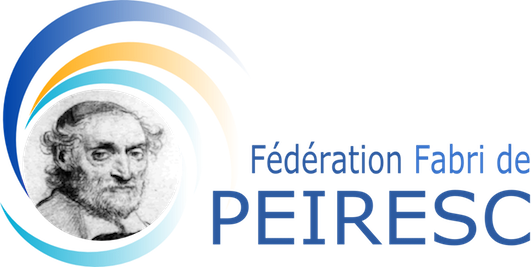Les cours, donnés en anglais, sont ouverts à tous les membres de la fédération et auront lieu au Bâtiment J / Joliot Curie.
Ces cours peuvent tenir lieu de formation doctorale pour l’ÉD 353 - Science de l’ingénieur
- Contact: Denis MARTINAND
Denis MARTINAND, Michael LE BARS, Benjamin FAVIER
4 x 4 hours of lectures + 2 x 4 hours of practical work + 2 x 4 hours of tutored seminar and workshop
Thursdays 8h30am to 12h30am, starting Sept. 21th — Building J (Joliot Curie)
Understanding the dynamics of planetary and stellar fluid layers (including atmospheres, oceans, iron cores, convective and radiative zones in stars) requires understanding the fundamental fluid mechanics of flows involving rotation, buoyancy, waves, instabilities and turbulence at typical scales well beyond our day-to-day experience. Besides, the main obstacle to quantitative modeling is the extreme character of the involved dimensionless parameters. Relevant studies thus rely on the principle of dynamical similitude and scaling laws, supported by theory, experiments and numerical simulations. Research in geo- and astrophysical fluid dynamics is thus intrinsically interdisciplinary and multi-method: the objective of this course is thus to provide participants with a global introduction and an up-to-date overview of relevant studies, fully addressing the wide range of involved disciplines and methods.
The course aims at showing current research topics in mechanics and will be organised in three parts. The first part will consist in 4 regular lectures introducing the basic concepts. The second part will take place in the lab, with 2 experimental and numerical practical works. The last part will consist in 2 seminars by specialists from various fields (non-linear physics, planetology, atmospheric sciences) with a thorough preparation in class before.
- Contact: Emmanuel VILLERMAUX
Emmanuel VILLERMAUX, Henri LHUISSIER
20 x 2 hours of lectures
Tuesdays 8h30am to 12h30am, starting Oct. 3rd — Building J (Joliot Curie)
This course discusses some fundamental principles ruling the continuum, with a particular emphasis on Capillary phenomena (which explain why cohesion of matter bridges the small with the large through surface tension), and Mixing (which explains how, and how fast, irreversibility occurs as a consequence of molecular diffusion). These topics are the opportunity to study various scaling laws, similarity theories, and self-organization phenomena encountered from the molecular to planetary scales. The course is illustrated with many laboratory experiments from ongoing research.
- Contact: Yoel FORTERRE
Yoël FORTERRE, Christophe ELOY, Stéphane VIOLLET, Joël MARTHELOT
4 x 6 hours of lectures (+ 1 supervised RD project of 16 hours)
Tuesdays 2pm to 6pm, starting Oct. 3rd — Building J (Joliot Curie)
« Studying biological processes with an engineering/physics perspective to develop new bio-inspired strategies »
• Swimming and fish-like locomotion
• Bio-inspired morphing of soft solids with mechanical instabilities
• Bio-inspired sensors
• Moving without muscle: lesson from plant’s
Machine learning for Mechanics
- Contact: Christophe ELOY
Christophe ELOY, Stefania SARNO
8 x 2 hours of lectures + 12 x 2 hours of practical work on computer
Wednesdays 8h30am to 12h30am or 2pm to 6pm, starting Sept. 27th — Building J (Joliot Curie)
This course introduces the basic principles of machine learning and their applications. Lectures will be combined with hands-on programming sessions so that students can learn how to apply machine learning algorithms to mechanical problems.
• Optimization methods
• Neural networks
• Supervised learning
• Unsupervised learning
Complex & Heterogeneous Materials
- Contact: Maxime NICOLAS
Maxime NICOLAS, Umberto D’ORTONA, Mihail GARAJEU
Lectures & numerical labs (40 hours)
Wednesdays & Thursday 8h30am to 12h30am, starting Nov. 27th — Building J (Joliot Curie)
Complex and heterogeneous materials are ubiquitous (e.g., powders and grains in the agribusiness, colloids in cosmetics, biological fluids and tissues, foams, gels and suspensions in food products, CO2 storage, erosion...). This course provides the knowledge and methods necessary to understand and model these complex fluids and solids.
• Flows of complex & non-newtonian fluids
• Rheology
• Granular flows : theory & numerical simulations
• Effective moduli of heterogeneous elastic materials
• Periodic microstructures

